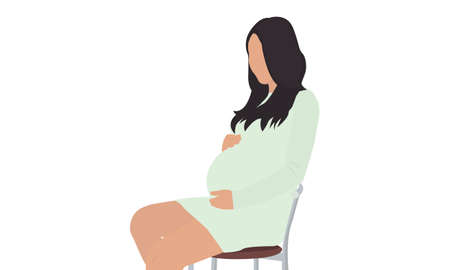Understanding NHS Maternity Care in the UK
The National Health Service (NHS) offers a comprehensive and inclusive maternity care pathway, ensuring that every expectant mother across the UK receives high-quality, personalised support from the early stages of pregnancy through to postnatal care. What sets NHS maternity services apart is their dedication to holistic, patient-centred care, delivered free at the point of access for all residents. This approach focuses on empowering women with tailored information and choices throughout their pregnancy journey.
NHS Maternity Pathway: An Overview
The NHS maternity pathway encompasses a range of services designed to support mothers and babies at every step. Below is an overview of what you can expect:
Stage |
Key Services Provided |
|---|---|
Antenatal (Before Birth) |
Antenatal checks, screening tests, personalised care planning, nutritional guidance, mental health support |
Labour & Birth |
Choice of birth setting (hospital, birth centre, home), midwife-led or consultant-led care, pain management options, partner involvement encouraged |
Postnatal (After Birth) |
Newborn checks, breastfeeding support, health visitor follow-ups, emotional wellbeing resources for parents |
What Makes NHS Maternity Care Unique?
The hallmark of NHS maternity care in the UK is its commitment to personalisation. Each woman is assigned a named midwife or team who provides continuity of care, building trust and understanding individual preferences. The NHS also recognises the importance of cultural sensitivity and strives to accommodate different backgrounds and needs. With an emphasis on evidence-based practice and community support, UK maternity care ensures that families receive not just medical attention but also practical advice on nutrition, lifestyle choices, and emotional wellbeing throughout the journey.
2. Registering Your Pregnancy and Booking Your First Appointment
Once you’ve confirmed your pregnancy, the next essential step is to register with your GP or directly with a midwife. Across the UK, you can inform your GP practice, who will then connect you with local maternity services, or in many areas, self-refer to a midwifery team using an online form or by phone. This early registration ensures you receive timely and tailored NHS maternity care.
Step-by-Step Guide to Registering Your Pregnancy
| Step | Action | Details |
|---|---|---|
| 1 | Contact GP or Midwife | Call your GP surgery or find your local NHS midwife service online. |
| 2 | Complete Registration Form | Fill out a short form with your personal and pregnancy details (can often be done online). |
| 3 | Receive Confirmation | Your chosen service will contact you to arrange your first appointment. |
| 4 | Prepare for Your Appointment | Gather information such as last period date, medical history, and any questions you may have. |
What to Expect at Your Booking Appointment
Your first NHS maternity appointment, known as the ‘booking appointment’, usually takes place between 8-12 weeks of pregnancy. During this session, a midwife will discuss your health, lifestyle, and family history to assess your needs. You’ll be given key information about antenatal screenings, nutrition (including folic acid and vitamin D), and available support services. If English isn’t your first language or you need additional support, interpreting services are available across the UK.
Topics Typically Covered at Your Booking Appointment:
- Your general health and medical history
- Your partner’s health background (where relevant)
- Lifestyle factors such as diet, exercise, smoking, and alcohol intake
- Antenatal screening options (such as blood tests and scans)
- Nutritional advice tailored to UK guidelines (including supplements)
- Your mental wellbeing and support networks available via the NHS
Accessing Your Maternity Notes (the “Red Book”)
The NHS provides you with either paper-based maternity notes (commonly called the “Red Book”) or digital access through secure online platforms like Badger Notes in many regions. These records track all appointments, test results, and key information throughout your pregnancy journey. Always bring these notes to every appointment, whether at the hospital or with your midwife in the community. Accessing them digitally also allows you to check reminders and advice specific to each stage of pregnancy.

3. Routine Pregnancy Appointments and Screenings
Throughout your pregnancy, the NHS provides a structured schedule of antenatal appointments and screening tests designed to monitor your health and your baby’s development. These routine checks are essential for identifying any potential concerns early on and ensuring both maternal and infant wellbeing align with NHS best practice.
Key Antenatal Appointment Schedule
| Stage of Pregnancy | Appointment Type | Main Focus |
|---|---|---|
| Up to 10 weeks | Booking appointment (with midwife) | Medical history, lifestyle advice, initial blood tests, urine tests, and discussion of care pathway |
| 11–14 weeks | Dating scan (ultrasound) | Confirm due date, check baby’s heartbeat, early screening for chromosomal conditions such as Down’s syndrome (combined test) |
| 16 weeks | Midwife appointment | Review blood test results, check blood pressure, discuss screening results and next steps |
| 18–20 weeks | Anomaly scan (ultrasound) | Detailed check of baby’s anatomy to screen for structural abnormalities |
| 25–40 weeks* | Regular antenatal visits (with midwife/GP) | Monitor growth, blood pressure, urine checks, discuss birth plan, assess wellbeing of mother and baby (*frequency varies for first or subsequent pregnancies) |
NHS Recommended Screening Tests
- Blood Tests: Check for anaemia, blood group, infectious diseases (HIV, hepatitis B, syphilis), and immunity to rubella.
- Urine Tests: Regular checks for protein and signs of urinary tract infections.
- Sickle Cell & Thalassaemia: Offered to all women early in pregnancy based on risk assessment.
- Ultrasound Scans: Dating scan (11–14 weeks) and anomaly scan (18–20 weeks).
- Aneuploidy Screening: Combined test (nuchal translucency scan plus blood test) between 11–14 weeks for Down’s, Edwards’, and Patau’s syndromes.
- Glucose Tolerance Test: For those at higher risk of gestational diabetes (typically at 24–28 weeks).
The Importance of Following NHS Guidelines
NHS guidelines ensure that every expectant mother receives timely appointments and evidence-based screenings. Attending these appointments allows your healthcare team to spot early signs of complications such as pre-eclampsia or gestational diabetes. The system is designed to provide reassurance throughout your pregnancy journey while supporting informed decision-making about your care.
4. Choosing Where to Give Birth Across the UK
When planning your birth with NHS maternity care, one of the most important decisions is choosing where you would like to give birth. Across the UK, expectant parents have several options, each offering unique benefits and considerations tailored to your needs and preferences.
Understanding Your Birthplace Options
| Option | Description | Who Might Benefit Most? |
|---|---|---|
| NHS Hospital Labour Ward | Staffed by doctors and midwives, equipped for all types of births, including those needing medical intervention. | If you have a higher risk pregnancy or want immediate access to specialist care. |
| Birth Centre (Midwife-Led Unit) | A more homely environment run by midwives, suitable for low-risk pregnancies. Some are alongside hospitals; others are freestanding. | If you prefer a natural birth in a calm setting with less intervention, and have a low-risk pregnancy. |
| Home Birth | Supported by NHS midwives in the comfort of your own home. Equipment and support are brought to you. | If you have a straightforward pregnancy and feel more relaxed at home. |
Key Factors to Consider When Deciding
- Your Health & Pregnancy Risk: Discuss with your midwife or obstetrician whether you have any medical conditions or pregnancy complications that might make one setting safer than another.
- Location & Accessibility: Consider travel time to the nearest hospital or birth centre, especially if you live rurally or if quick access to medical care is important for your peace of mind.
- Support Network: Think about who you want present at the birth and what facilities each location allows regarding partners or birthing companions.
- Pain Relief Preferences: Hospital settings offer a wider range of pain relief options such as epidurals. Birth centres and home births typically focus on non-medical methods like water, movement, or hypnobirthing techniques.
- Cultural & Personal Values: Your personal beliefs, cultural traditions, and feelings about privacy and comfort can all shape your choice of birthplace.
NHS Support for Informed Choice
The NHS is committed to supporting informed choices for all parents-to-be. Your maternity team will provide evidence-based advice tailored to your circumstances, ensuring that wherever you choose to give birth—whether in a hospital, a birth centre, or at home—you feel safe, confident, and supported throughout your journey.
5. Nutritional and Lifestyle Support during Pregnancy
Ensuring optimal nutrition and making healthy lifestyle choices are fundamental components of antenatal care supported by the NHS across the UK. From your booking appointment, your midwife or healthcare provider will guide you with practical advice tailored to your needs and local guidelines. Below is an overview of key dietary recommendations, essential supplements, and important lifestyle considerations for a healthy pregnancy journey.
Dietary Recommendations for Expectant Mothers
A balanced diet is crucial in supporting your baby’s development and maintaining your health during pregnancy. The NHS recommends focusing on a variety of foods from each food group:
| Food Group | Recommended Choices | Benefits |
|---|---|---|
| Fruits & Vegetables | At least 5 portions per day (fresh, frozen, canned, dried or juiced) | Provides vitamins, minerals, fibre |
| Starchy Foods | Wholegrain bread, rice, potatoes, pasta | Main source of energy and fibre |
| Dairy & Alternatives | Milk, cheese, yoghurt (choose low-fat options where possible) | Calcium for bone health |
| Protein-rich Foods | Lean meat, fish (2 portions/week inc. oily fish), eggs, beans, pulses | Growth and repair of tissues; iron intake |
| Healthy Fats | Nuts, seeds, vegetable oils (in moderation) | Supports babys brain development |
Essential Supplements: What’s Recommended in the UK?
The NHS provides clear guidance on supplements to support both maternal and foetal health:
- Folic Acid: Take a daily supplement of 400 micrograms from before conception until at least week 12 of pregnancy to reduce the risk of neural tube defects.
- Vitamin D: A daily supplement of 10 micrograms is recommended throughout pregnancy and breastfeeding to support bone health.
- Iron & Other Vitamins: Some women may need additional supplements if advised by their midwife after blood tests.
- Avoid Vitamin A: High doses can harm your baby; avoid liver products and supplements containing retinol.
Lifestyle Choices for a Healthy Pregnancy
- No Smoking or Alcohol: Both are linked to increased risks for complications; NHS stop-smoking services offer support across the UK.
- Aim for Regular Activity: Moderate exercise such as walking or swimming can help manage weight and improve mood—always consult your midwife before starting new activities.
- Sufficient Rest: Prioritise good sleep hygiene and rest when needed.
- Caffeine Intake: Limit to no more than 200mg per day (about two mugs of instant coffee).
- Avoid Certain Foods: Unpasteurised dairy, raw or undercooked meats/eggs, some fish high in mercury—your midwife can provide a full list.
Your NHS Team Is Here for You
Your midwife will continue to offer individualised advice on diet and lifestyle at each stage of your pregnancy journey. If you have specific dietary requirements—such as vegetarianism, veganism, or food allergies—the NHS will ensure you receive tailored support. Remember: every healthy choice helps lay the foundation for both your wellbeing and your babys optimal development.
6. Support and Resources for Expectant Mums
Throughout your pregnancy journey with the NHS, a wealth of support and resources are available to help you feel informed, confident, and cared for. From antenatal classes to mental health services, the UK offers comprehensive assistance tailored to expectant and new parents.
Antenatal Classes: Preparing for Birth and Beyond
Antenatal classes are widely accessible through NHS hospitals, local community centres, and sometimes online. These classes cover essential topics such as labour preparation, pain relief options, breastfeeding techniques, nutrition guidance, and newborn care. They also provide a great opportunity to meet other parents-to-be in your area.
| Service | Description | How to Access |
|---|---|---|
| NHS Antenatal Classes | Free or low-cost group sessions covering childbirth and parenting basics. | Ask your midwife or visit your local NHS Trust website for details. |
| Online Courses | Flexible digital resources suitable for busy schedules. | NHS Start4Life and local council websites often provide links. |
| Private Classes | Paid sessions with specialist focus (e.g., hypnobirthing). | Search local providers or ask your midwife for recommendations. |
Mental Health Support for Mums-to-Be
Your emotional wellbeing is just as important as your physical health during pregnancy. The NHS provides dedicated perinatal mental health services across the UK, offering counselling, peer support groups, and advice on managing stress or anxiety. If you have any concerns about your mood or mental health, speak openly with your midwife or GP—they can connect you with the right support promptly.
Key Mental Health Resources:
- NHS Perinatal Mental Health Teams: Specialist teams supporting women at risk of or experiencing mental health difficulties during pregnancy and postnatally.
- PANDAS Foundation UK: National charity offering helplines and local support groups for pre- and postnatal depression (pandasfoundation.org.uk).
- MIND: Leading UK mental health charity with information on perinatal wellbeing (mind.org.uk).
Connecting with Local Community Groups
Engaging with local community groups can provide invaluable peer support throughout your pregnancy. Many areas offer bump & baby clubs, breastfeeding cafés, walking groups, and parenting workshops where you can share experiences and tips with others in similar stages of parenthood. Your midwife or health visitor will usually have up-to-date information on groups near you.
NHS-Recommended Community Resources:
- NCT (National Childbirth Trust): A wide network of parent-led groups offering classes and meet-ups throughout the UK (nct.org.uk).
- Bump2Baby Groups: Local sessions supporting mums from pregnancy to early childhood—ask at your GP surgery or children’s centre.
- Sling Libraries & Breastfeeding Support: Available in many towns—check notice boards at clinics or search online directories.
NHS Information Tailored for New Parents Across the UK
The NHS offers a range of reliable online resources to guide you through every stage of pregnancy and early parenthood. Here are some essential links:
| NHS Resource | Description | Website Link |
|---|---|---|
| NHS Pregnancy Guide | A week-by-week overview with practical advice from conception to birth. | nhs.uk/pregnancy/ |
| NHS Start4Life | Tried-and-tested tips on healthy eating, activity, and caring for baby. | nhs.uk/start4life/ |
| NHS Baby Buddy App | A free app providing daily information tailored to each stage of pregnancy. | nhs.uk/apps-library/baby-buddy/ |
Your Next Steps
No matter where you are in the UK, remember that help is always close by—from expert healthcare professionals to friendly local networks. Don’t hesitate to reach out; embracing these resources ensures you’re supported every step of the way through your pregnancy journey with the NHS.


